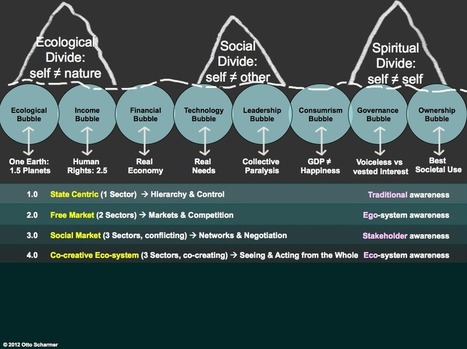Apichai Puntasen, a good friend and also the author of the first textbook on Buddhist Economics, forwarded me an interesting thesis: * Thesis: The relevance of Buddhist Economics: Capitalism, Morality, and the Global Financial Crisis. By Timothy Allen Golden, 1033690. Dept. of Economics, Lingnan University. Submitted: May 4, 2009 You can obtain a copy from... Continue reading →
Research and publish the best content.
Get Started for FREE
Sign up with Facebook Sign up with X
I don't have a Facebook or a X account
Already have an account: Login
on peer-to-peer dynamics in politics, the economy and organizations
Curated by
jean lievens
 Your new post is loading... Your new post is loading...
|
|












